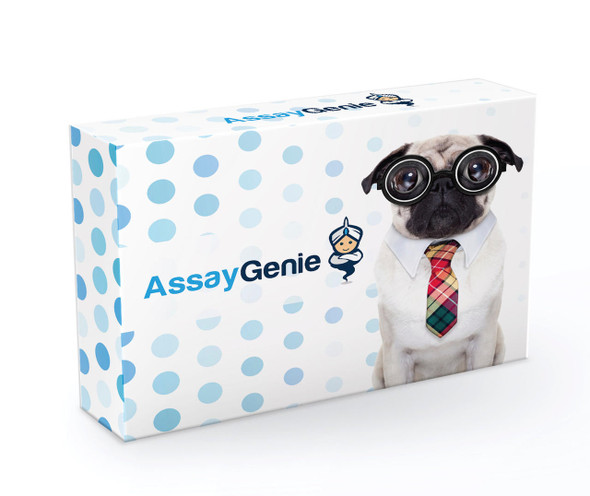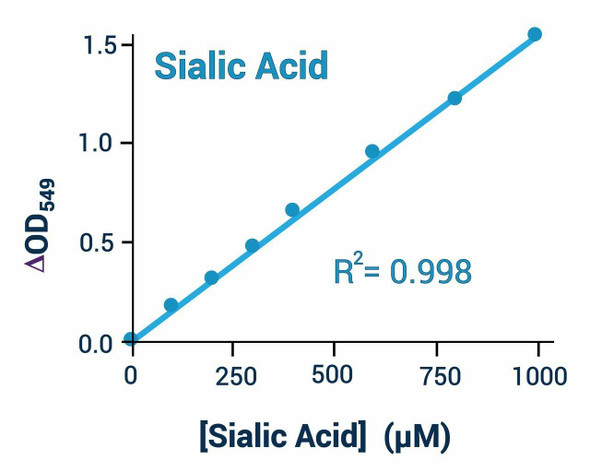Pyruvic Acid Colorimetric Assay Kit (MAES0104)
- SKU:
- MAES0104
- Product Type:
- Assay
- Detection Method:
- Colorimetric
- Instrument:
- Microplate Reader
- Sample Type:
- Serum, Plasma, Tissue
- Sensitivity:
- 0.003 umol/mL
- Range:
- 0.003-2.0 umol/mL
- Assay Time:
- 30 min
- Shipping:
- Gel Pack
- Research Area:
- Glycolysis & Carbohydrates
- TCA Cycle
- Diabetes & Obesity
- Food Safety & Analysis
- Amino Acid and Protein
Description
| Product Name: | Pyruvic Acid Assay Kit - Colorimetric |
| Product Code: | MAES0104 |
| Product Size: | 96 Assays |
| Sample Type: | Serum, plasma, tissue |
| Assay Time: | 30 min |
| Instrument: | Microplate reader |
| Sensitivity: | 0.003 µmol/mL |
| Detection Range: | 0.003-2.0 µmol/mL |
| Recovery Rate: | 95 |
| Inter CV: | 3.6 |
| Inter CV: | 2.3 |
Pyruvic acid is the simplest of the alpha-keto acids, with a carboxylic acid and a ketone functional group. Pyruvic acid can be made from glucose through glycolysis, converted back to carbohydrates (such as glucose) via gluconeogenesis, or to fatty acids through a reaction with acetyl-CoA. It can also be used to construct the amino acid alanine and can be converted into ethanol or lactic acid via fermentation. Pyruvic acid supplies energy to cells through the citric acid cycle (also known as the Krebs cycle) when oxygen is present (aerobic respiration), and alternatively ferments to produce lactate when oxygen is lacking (lactic acid fermentation).
Pyruvic acid reacts with the chromogenic agent to produce a reaction product that is reddish brown in alkaline solution. The depth of color is directly proportional to the pyruvate content. The pyruvate content can be calculated by measuring the OD value at 505 nm.
| Shelf Life: | 6 Months |
| Storage: | 2-8°C |
| Shipping: | Gel Pack |
| Research Area: | Glycolysis & Carbohydrates, Amino acids & proteins |
test






